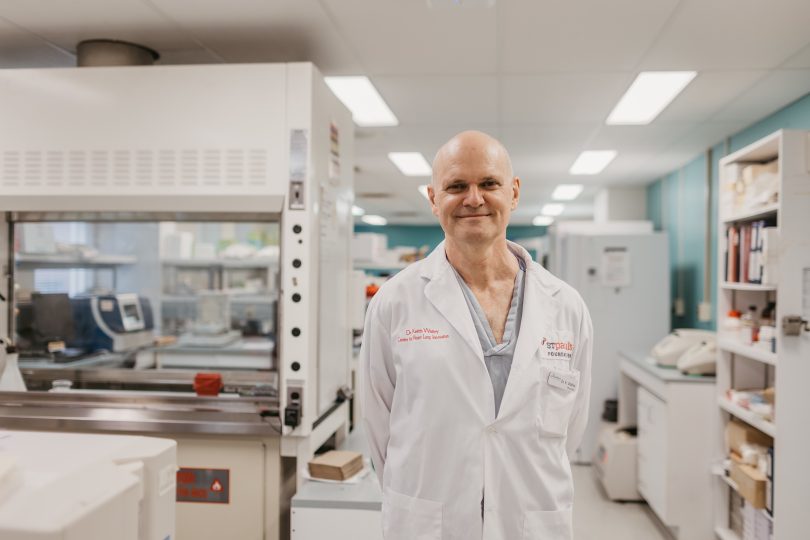Dr. Keith Walley, a senior clinician-scientist for the Centre for Heart Lung Innovation, attending physician at the St. Paul’s Hospital Intensive Care Unit, and Professor of Medicine at the University of British Columbia, has been appointed as a Member to the Order of Canada.
The award recognizes outstanding achievement, dedication to the community, and service to the nation. Dr. Walley has made extraordinary contributions to medical science that have changed clinical practice throughout the world, particularly in the understanding and treatment of sepsis.
Sepsis research shaped clinical practice worldwide
Throughout his career, Dr. Walley has made discoveries in medical research that have impacted clinical care internationally. Much of his research focuses on the mechanisms behind organ failure in sepsis, a condition caused by the body’s response to severe infection.
“Sepsis is a leading cause of death around the world. It exceeds cancer, it exceeds heart disease and stroke,” says Dr. Walley. He has become a world leader in understanding cardiovascular function in this state.
His research into organ uptake of oxygen in patients with severe infection found that it was not, in fact, helpful to increase oxygen supply beyond normal. Studies he conducted into the buildup of acid in the blood found that the use of a bicarbonate buffer solution was similarly not beneficial. Research he conducted on cardiovascular function led to the use of a new medication to increase blood pressure in sepsis, vasopressin. All of these discoveries led to an international change in clinical practice.
Currently, his research is focused on how different genetic pathways can contribute to positive and negative outcomes in sepsis. Using genetic analysis, he discovered that a number of cholesterol-related genes seem to play an important role in the outcomes of patients with sepsis.
“We found that toxic products from infecting bacteria are carried within cholesterol particles and removed from your body, the way cholesterol is removed from your body. So, a high level of HDL, the good cholesterol, is a very good thing in severe infections,” says Dr. Walley.
This discovery has led to a number of international clinical trials into the role of cholesterol in sepsis.
Translating discoveries from research to clinical practice
In addition to research, Dr. Walley has treated patients in the ICU for the duration of his career, and he is able to translate his discoveries in research into his clinical practice. Sepsis is one of the most significant problems that he has faced while treating patients, which is part of the reason it is the focus of his research.
“All of my research is linked to what I see in patients, the problems that I see, and also linked to trying to come up with solutions so my patients do better,” says Dr. Walley. “From the start of my career all the way through, [sepsis] has been a really tough problem to solve. For me, it’s the toughest problem that we face in the intensive care unit.”
Caring for patients at their most vulnerable point
In both his research work and in his clinical practice, Dr. Walley is driven by the ability to help critically ill patients. His appointment to the Order of Canada reminds him what a privilege it is to be able to look after those patients at one of the most vulnerable times in their lives.

He is grateful for his appointment, which was made possible in part because of the colleagues he has worked with, and the patients he has treated.
“[The Order of Canada] reminds me of where I am, which is within really a wonderful group of individuals at the Centre for Heart Lung Innovation, and at St. Paul’s Hospital. You can’t do any of this, none of this could you ever do alone,” says Dr. Walley.
You can read the full news release about his appointment here.
Story by Grace Jenkins, Providence Research





